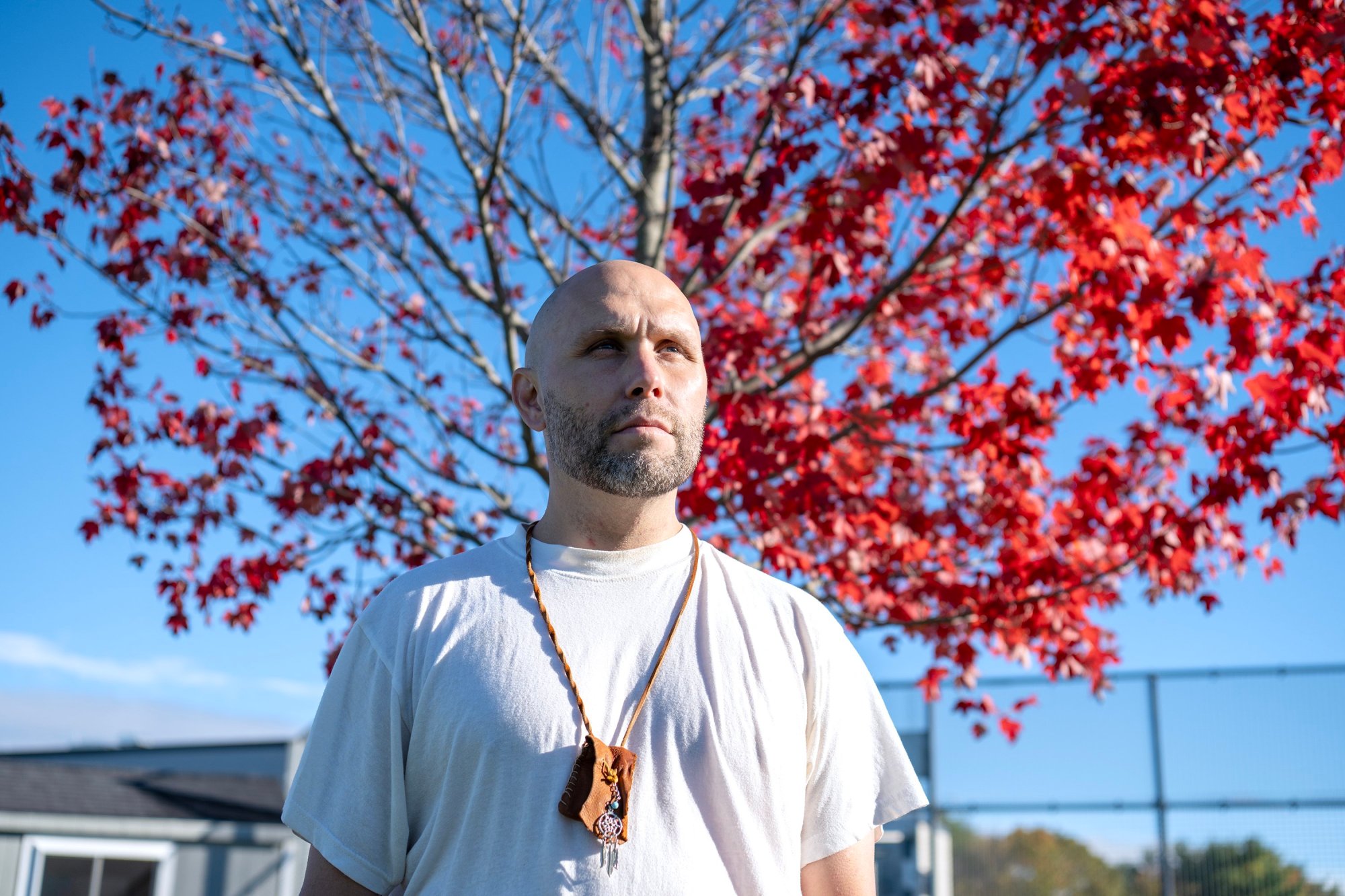WINDHAM — When the tarps of the sweat lodge are pulled back, a swirling cloud of steam wafts up toward the bear pelt draped overhead.
It dissipates before reaching the razor wire that caps the fences around the recreation yard at the Maine Correctional Center.
Between rounds in the ceremony, voices from inside command the retrieval of rocks warming in a fire pit a few feet away. Women carefully lift the rocks with shovels over an altar bearing a cedar bough and a turtle shell, and into the lodge.
As Savannah Smith, 28, crawls out of the roughly 12-foot-wide structure, she grins.
“It’s a lot right now,” she said, her calves dotted with goosebumps as her body readjusts to the cool fall air after two hours inside the lodge.
Her halting voice and still-glistening eyes give her away: “I cried at every session we had.”
It’s been nearly 20 years since Indigenous people in Maine’s prisons won the right to practice their religion while incarcerated. Inmates say sweat ceremonies help them stay sober and connect them to their communities. And the state’s corrections commissioner heralds them as a sign of Maine’s inclusivity and says they are part of a progressive approach to ensuring safety inside prisons and reducing the likelihood of future offenses.
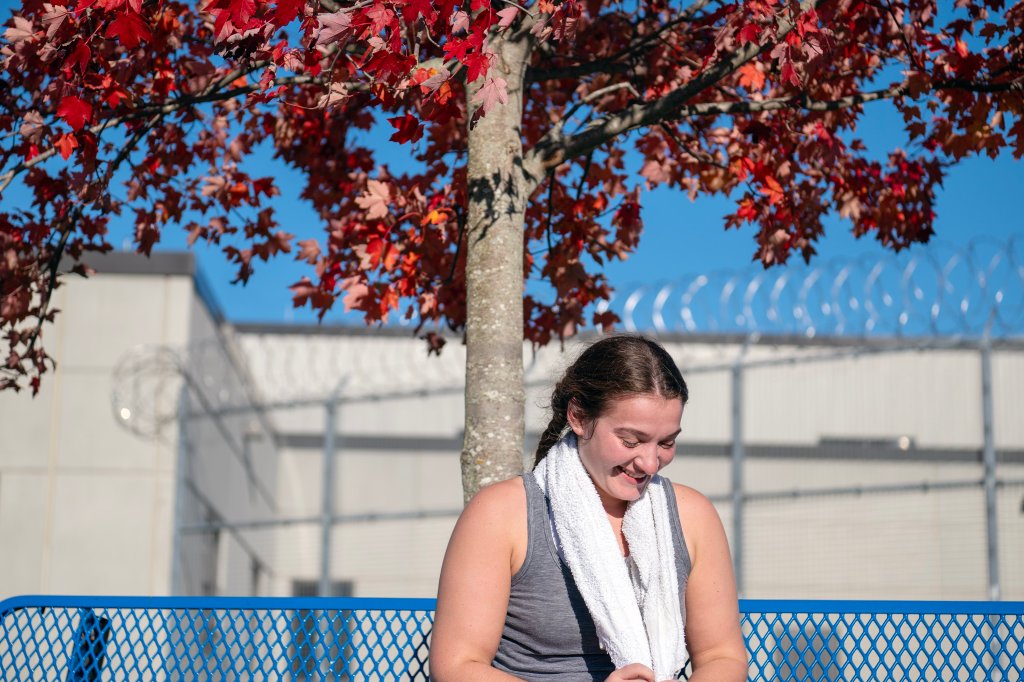
‘I’M FINALLY CLEAN’
Since inmates won the right to hold sweat ceremonies, Brian Altvater has traveled from his Down East home on the Passamaquoddy Reservation at Sipayik (Pleasant Point) to facilitate them. He is a pipe carrier and a sweat lodge keeper — designations, he explained, that are chosen by the ancestors.
“I don’t deserve to be a pipe carrier and do this sort of work,” he told his teacher, David Gehue of Sipekne’katik, Nova Scotia, when Gehue noticed his potential.
“Deserve’s got nothing to do with it,” Gehue, himself a respected spiritual leader, said. “Once the ancestors pick you, you don’t have a choice.”
“Let me think about it,” Altvater said.
That was several decades ago.
Altvater has held 108 sweat lodge ceremonies in Maine prisons since 2007, and in 2020 was hired by the nonprofit Wabanaki REACH (restoration, engagement, advocacy, change and healing) to continue the work.
This work is less an occupation for Altvater and more a way of life.
“You can start with a clean slate from today and move on to the rest of your life and learn from the mistakes that you made so you don’t repeat ’em,” he said.
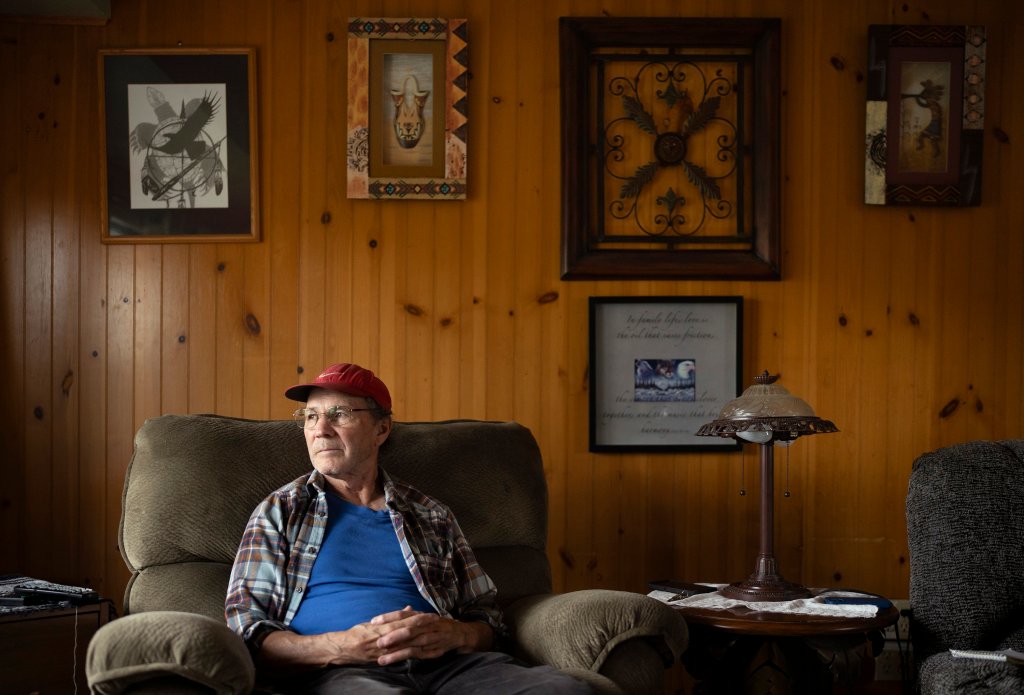
That’s not just talk. Pipe carriers cannot abuse drugs or alcohol, and Altvater only became one after getting on the wagon himself. He’ll mark 43 years of sobriety in December.
Altvater generally holds two sweat lodge ceremonies per year in each of the state’s five prison complexes. On Oct. 21, he had a group of eight men in the morning and 17 women in the afternoon.
Smith was fidgety when she arrived in the yard after lunch.
She is five years into a 10-year sentence for a manslaughter conviction and is close to receiving a certificate in substance abuse recovery. This was her first sweat since she stopped taking Suboxone, a medication used to treat opioid use disorder.
Two hours later, Smith emerged from the lodge.
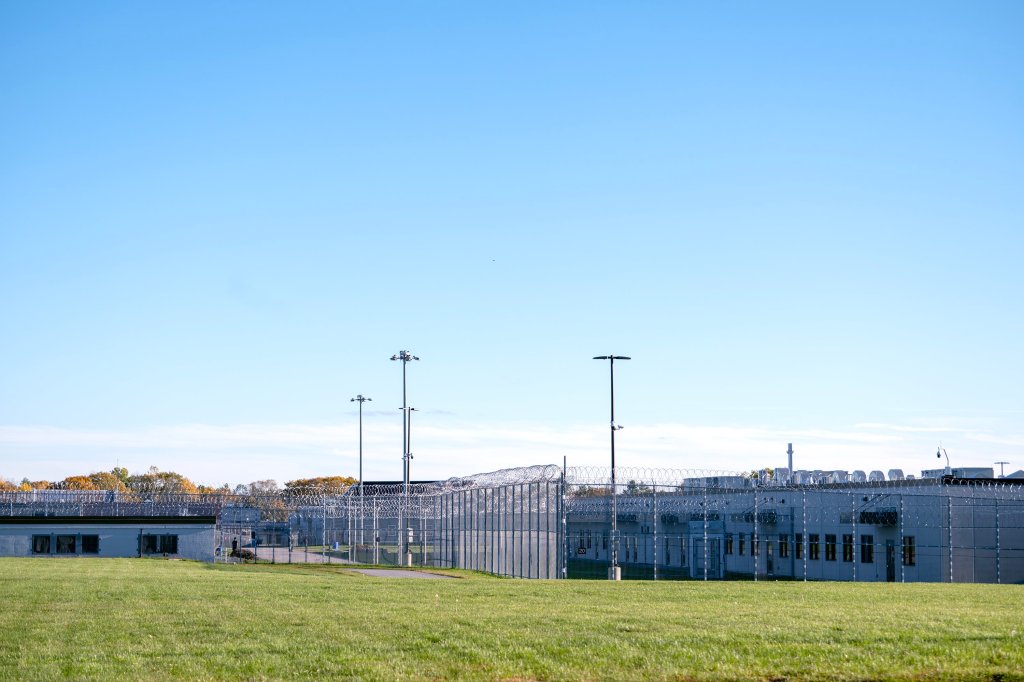
“I’m finally clean,” she said.
Smith’s anxious anticipation had melted into ebullient gratitude.
“It’s hard to really explain,” she said. “It’s the best feeling you could have.”
PRACTICING FAITH
There is a long history in the United States of squashing the practice of Native American religion. It was not until 1978 that the federal government affirmed the rights of Indigenous people to practice their traditional ceremonies.
In 2003, and again in 2007, Native American inmates at the Maine State Prison sued corrections officials alleging they were not allowed to practice their religion while incarcerated. In contrast, the lawsuits said Catholic and Protestant inmates were given space and resources, and enjoyed relaxed rules so they could conduct weekly services and celebrate holidays.
The first sweat lodge ceremony in a Maine prison happened on May 18, 2007, at the Bolduc Correctional Facility in Warren. A year later, the Legislature passed a law recognizing the rights of Indigenous inmates to hold sweat lodge ceremonies and talking circles, and use ceremonial tobacco and other herbs in the practice of their religion.
Access for Indigenous inmates to sweat lodge ceremonies while incarcerated has varied over the last 50 years across the country, but is by and large common, according to news reports and analyses of state policies.
“It’s absolutely ridiculous for us to (have to) be forced to provide a dignified approach to faith and culture in our system,” Randall Liberty said.
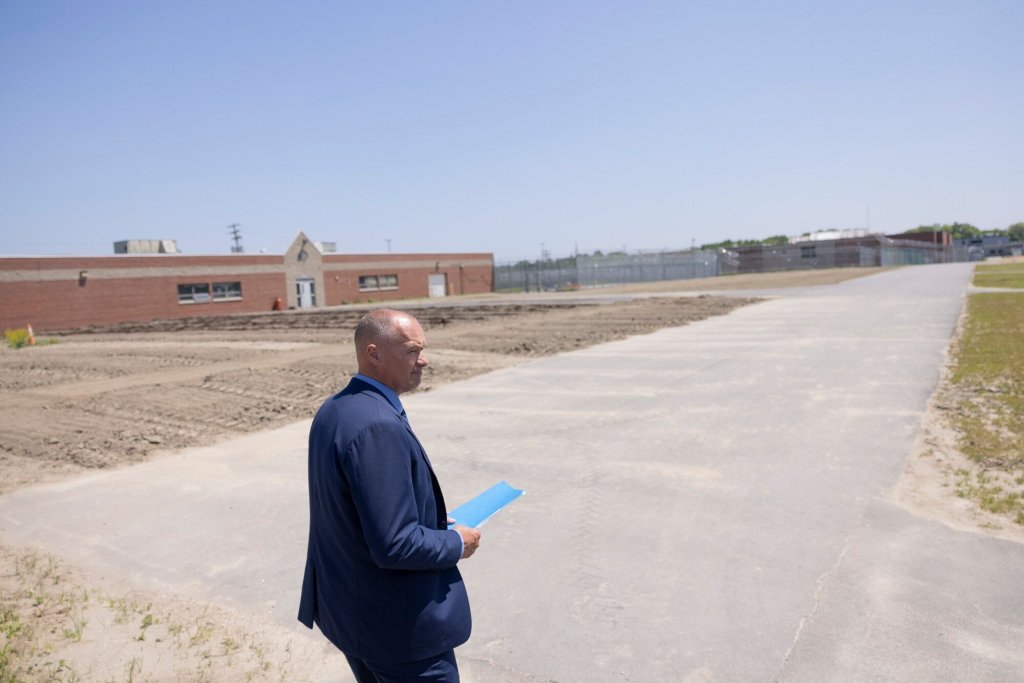
He became warden of the Maine State Prison in 2015, and was appointed by Gov. Janet Mills in 2019 to serve as a state commissioner overseeing the Department of Corrections.
When Liberty became warden, there was still significant resistance to allowing inmates to keep tobacco in their medicine pouches.
“Oh, it’s contraband,” officers told Liberty.
“No, it’s part of the faith,” he thought.
Before the ceremony in Windham, Adam Jalbert had reservations about some of the men joining for the first time. He’s 18 months into a seven-year sentence on drug trafficking charges, and has participated in four sweats at the correctional center.
Jalbert, 37, is not Indigenous but developed an interest in the practices because his son is. Now, he takes the rituals seriously, in part because they help him stay sober.
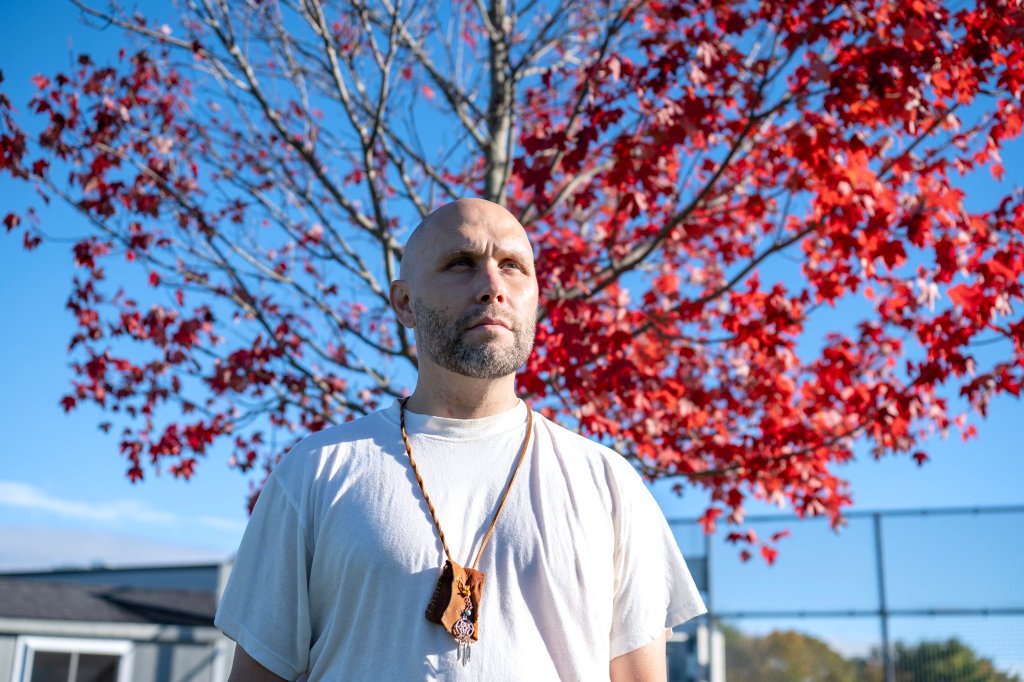
He fasted for two days to prepare, and had some reservations about newcomers who may not be there for the same reasons. He wondered if some of the men just came because tobacco was involved.
That premonition proved at least partly true; it was discovered later in the day that someone had absconded with a few grams of tobacco.
Still, after the ceremony, Jalbert watched as the men took care of everyone and ensured that all the inmates, staff and volunteers were fed and had water.
“I can’t say that would’ve happened if we weren’t doing this,” Jalbert said.
‘THIS KIND OF WORK REDUCES RECIDIVISM’
There are 191 Indigenous people in Maine state custody — about 2.3% of the incarcerated population.
Liberty says he’s committed to continually learning to better serve those in state custody. To that end, REACH will teach its first class of corrections cadets about Wabanaki culture before the end of 2025.
The commissioner has noticed that sweat lodge ceremonies improve participants’ self-image and connectivity to the outside world.
“I believe this kind of work reduces recidivism, reduces the return to custody for our residents,” he said. “When we look at things that are transformational, we know that faith is one of the foundational tenets of what we do to make sure people don’t return to custody.”
Studies have shown this to be true in the short term, although the correlation between religious practice and reduced recidivism is unclear over the long term.
From a practical standpoint, they present little security risk, he says.
Rather, spiritual practices are part of what is known in the industry as “dynamic security,” which refers to security derived from a sense of well-being and safety among the inmates.
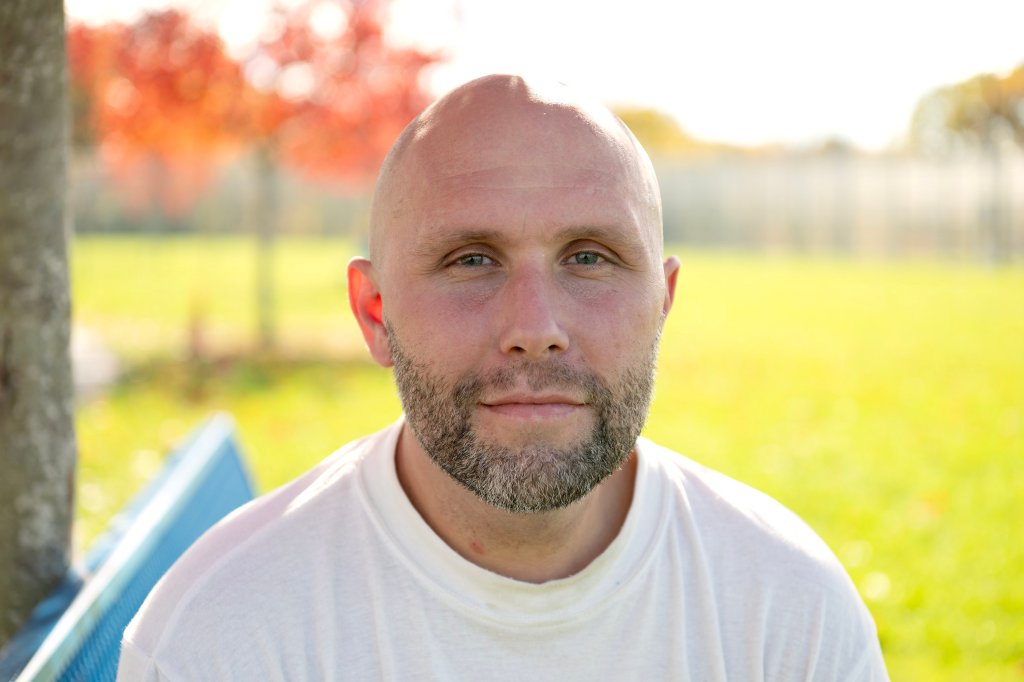
“I feel like a new person,” Jalbert said after the ceremony, a smile now finding its way across his face. “The breeze feels good.”
A CEREMONIAL SPACE
When the men arrived in the morning to an empty yard, the sun was showing itself over the trees and beginning to warm the chilly fall day.
The yard at the edge of the 620-bed prison is spacious but empty. There are two benches, one chained to a small maple that sheds ember-red leaves with every gust. A razor-wire fence contains it all.
None of it fazes Altvater when he disappears into the lodge, away from the observant eye of the prison’s cameras and the lone guard. They’re all equals in there.
“I don’t judge these guys. That’s not my place,” Altvater said in a moment of quiet reflection. “They’re still people. They’re still, at some point, somebody’s child.”
As the men piled blankets and tarps over poles driven into the earth, the fire was lit sending a column of smoke up out of the yard. Altvater lit a smudge stick and used a feather to cloak the structure and each participant in its fragrance.
The wafting sage worked in harmony with the beating of a drum and the billowing fire to transform the nondescript recreation yard into something else — a place of healing and growth.
That’s hard to come by in prison.
“You’re not meant to feel emotions here,” Smith said.

There’s no one moment when the ceremony begins.
One man is beating a drum and suddenly, with little fuss, Altvater slips into the lodge. Soon, the men remove their shirts and follow him in.
As a few of them retrieve the first round of hot rocks from the fire, a bald eagle approaches from the west, making a series of counterclockwise passes overhead.
From high above the fence line, it gazes down for a moment upon the lodge.
Reuben M. Schafir is a Report for America corps member who writes about Indigenous communities for the Portland Press Herald.

